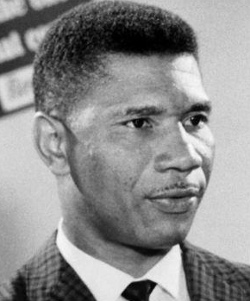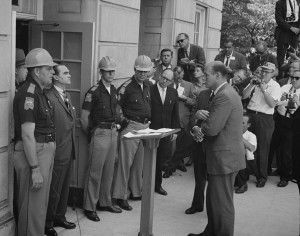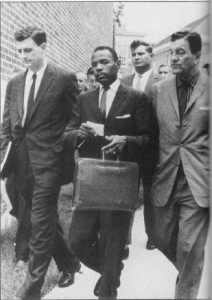The assassination of Medgar Evers, 50 years later
Posted June 12th, 2013 by James DeWolf PerryCategory: Public History Tags: Civil rights movement, Medgar Evers, Myrlie Evers-Williams, NAACP
 Yesterday, I wrote here on the 50th anniversary of one of the most momentous days in the history of the civil rights movement.
Yesterday, I wrote here on the 50th anniversary of one of the most momentous days in the history of the civil rights movement.
June 11, 1963 was a day of obvious, encouraging progress for the civil rights movement. It was the day when George Wallace was forced to step aside and watch the integration of the University of Alabama by Vivian Malone, James Hood, and the Alabama National Guard. That evening, President John F. Kennedy, released from the obligation to address the crisis in Tuscaloosa, made the last-minute decision to speak to the nation from the Oval Office anyway, announcing in hastily-prepared remarks that the civil rights movement was a moral issue without which the nation could not fulfill its promise of freedom, and promising the hastening of desegregation and the introduction of what would become the landmark Civil Rights Act of 1964.
I ended by noting, briefly, that hours after the president finished addressing his radio and television audience, there would be a horrifying event in Jackson, Mississippi. That event, of course, was the assassination of Medgar Evers, the outspoken NAACP field secretary for Mississippi, who was murdered by Byron de la Beckwith, a white supremacist, in the early morning hours of June 12.



 On the morning of June 11, 1963, Governor George Wallace of Alabama personally and physically intervened, in front of television cameras, to attempt to block the desegregation of the University of Alabama in Tuscaloosa.
On the morning of June 11, 1963, Governor George Wallace of Alabama personally and physically intervened, in front of television cameras, to attempt to block the desegregation of the University of Alabama in Tuscaloosa.